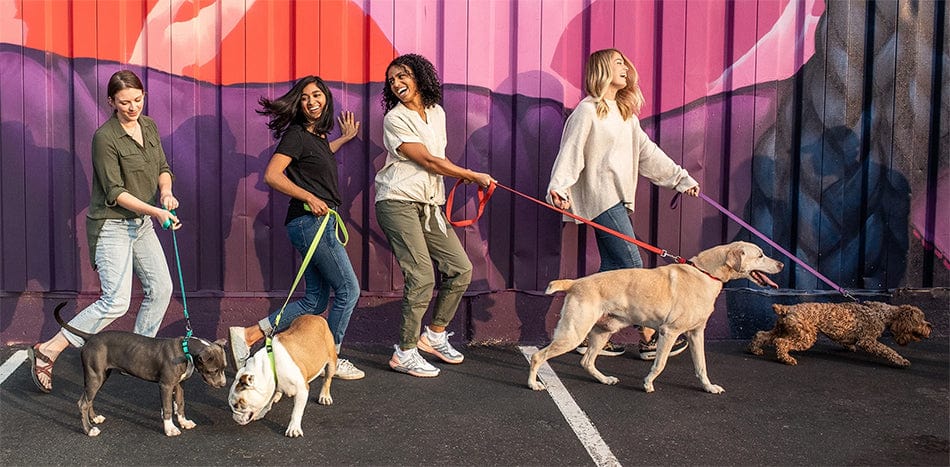Your cart is empty. Let's fix that!


This post is written by holistic veterinarian Dr. Angie Krause, DVM, CVA, CCRT.
It’s allergy season! You may wake up with a runny nose and watery eyes, and decide to take an over-the-counter medication to relieve your symptoms and move on with your day. But what about your dog? Read our guide to canine allergies - from types of allergens, to the symptoms to look for and how to treat them.
Your dog’s allergies may manifest as a runny nose and itchy eyes, just as they appear for us. However, dogs are more commonly itchy as a result of food and environmental allergies. Symptoms of allergies include:
Dogs can be allergic to food or things in their environment (dust, pollen etc). Severely allergic dogs tend to have a combination of both food and environmental allergies. Meats and protein rich foods are the most common allergens. However, dogs can be allergic to almost any food.
Before we get started with diet changes and other therapies, it’s important to make sure your dog doesn’t have any skin parasites. Most of these critters can be identified with a quick trip to the vet. Also, if your dog has scratched themselves raw or has a deep skin infection, antibiotics may be required to stop the itch.
Once you have cleared up any infection and ruled out mites, lice and fleas, it’s time to figure out if your pup has food allergies. Here are the steps I follow for itchy patients in my practice.
Step 1: Eliminate grains, including corn and wheat.
If no improvement in 4-6 weeks:
Step 2: Switch to a raw diet. Raw diets change the bacteria in the gut that affect the immune system.
If no improvement in 4-6 weeks:
Step 3: Switch meat sources. Be sure that there is only one meat source in all treats and food given.
If no improvement in 4-6 weeks:
Step 4: Try an elimination diet. This includes feeding a diet with just a few ingredients. Home cooking is preferable to prevent cross contamination. An example elimination diet would include beef, potatoes and carrots.
If there is no improvement or you don’t have time to cook for your pup.
Step 5: Use an amino acid based diet. This is the fastest way to identify if your dog’s symptoms are caused by food allergies. You can read more about amino acid based diets here.
At any time you can skip to step 5 if your pup is miserable or you are feeling frustrated!
If you have successfully identified and removed offending foods, and your pup is still itchy, it’s time to consider environmental allergies as a cause. Immunotherapy is a great option to help the immune system become less reactive to anything from dust mites to pollen. Immunotherapy is a natural way to decrease allergies by presenting the immune system with small amounts of the offending allergen twice daily. I prefer using veterinarians that specialize in dermatology if possible. You can find a veterinary dermatologist to help your dog here.
If your dog is miserable and scratching, there are a few drugs that can stop the itch very quickly. These include steroids: Apoquel and Cytopoint. While these drugs are not the most natural option, they can rescue your pup from a terrible situation. Just keep in mind, if you are able to identify food allergies and use immunotherapy, your dog may not need these drugs forever.
Unfortunately, the same over-the-counter antihistamines that help your symptoms rarely help dogs.
While any dog can have allergies, the following breeds are more commonly itchy:
Are you loved by an itchy, allergic dog? How do you help your pup live more comfortably with allergies? I would love to hear from you in the comments below!
Big hugs to you and your pup!
Dr. Angie